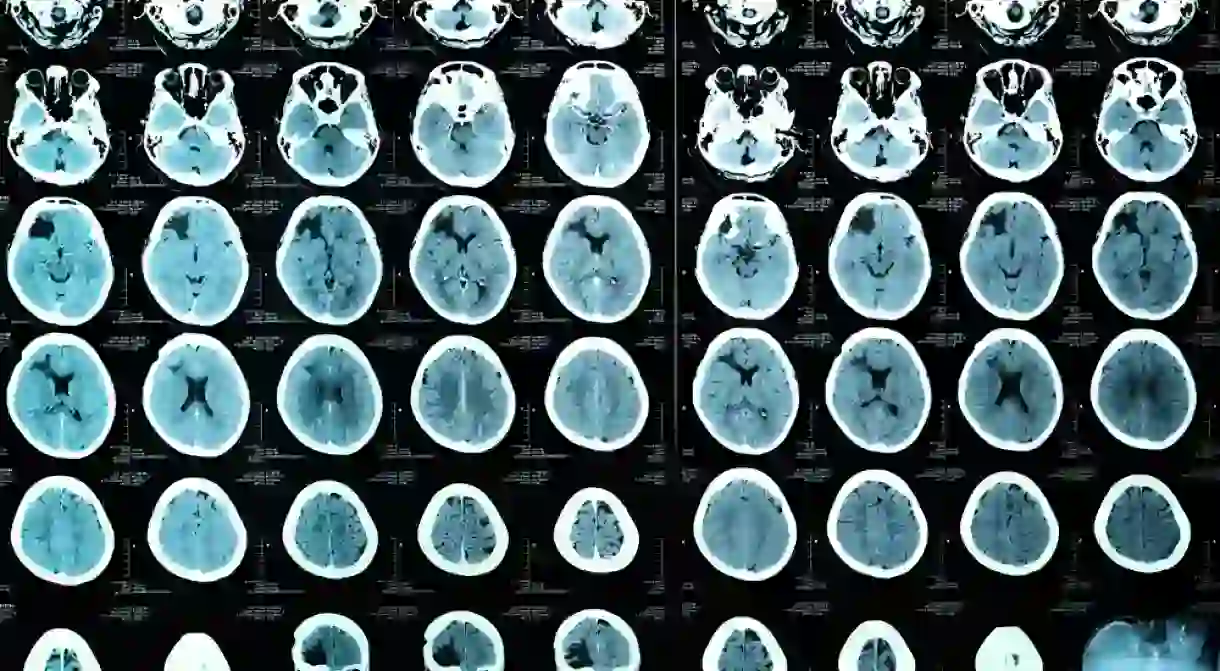The Continued Search for Answers to Head Injuries in Football

Concussions and chronic traumatic encephalopathy (more commonly known as CTE) are unfortunately becoming common associations with football.
A day seemingly doesn’t go by without another story of a current or former National Football League player speaking out about having headaches, memory loss and dizziness, or CTE being the cause of a player suffering from depression and/or subsequently committing suicide.
The latest news is surrounding New England Patriots quarterback Tom Brady, following comments made by his wife, Gisele Bündchen, on CBS This Morning. She told host Charlie Rose that Brady had a concussion last year and “he has concussions pretty much. We don’t talk about it, but he does have concussions.”
The NFL was quick to release a statement denying any claims the five-time Super Bowl champion suffered a concussion during the 2016 season:
“There are no records that indicate that Mr. Brady suffered a head injury or concussion, or exhibited or complained of concussion symptoms. Today we have been in contact with the NFLPA and will work together to gather more information from the club’s medical staff and Mr. Brady. The health and safety of our players is our foremost priority and we want to ensure that all our players have and continue to receive the best care possible.”
While preventing head injuries and promoting player safety is paramount to the NFL, there are a slew of former players who are equally as invested in finding a solution to the problem.
Recently, two former players have said they will donate their brains to help scientists continue to learn more about football-related injuries and CTE. Former Pro Bowl quarterback and ESPN analyst Matt Hasselbeck and two-time Super Bowl champion Leonard Marshall pledged their brains to the Concussion Legacy Foundation.
“CTE is no joke and I don’t want to see anyone else suffer like me and my friends,” Marshall said in a statement. “At 55, I have short-term memory loss, erratic behavior and experience fogginess. This is literally a life-and-death matter, and it’s time we start having real, honest conversations about brain trauma in professional and youth sports.”
Cleveland Browns left tackle Joe Thomas had a very frank recent conversation about his issues with head injuries. The 10-time Pro Bowl lineman recently revealed he’s experienced short-term memory loss, including forgetting what he needed to buy when he was at the grocery store.
The list of former and current players dealing with similar problems is seemingly endless.
Former Jacksonville Jaguars and Baltimore Ravens offensive lineman Will Rackley was forced to retire from the NFL in 2014 after suffering three concussions in nine months. He said he’s “not against” donating his brain to be studied, but hasn’t really looked into it yet.
“I’m no doctor but I’d assume by continuing to play football it would only make it worse,” Rackley said of instances like Thomas’ memory loss. “I know when it comes to having memory issues, it’s a scary thing.”

According to the Mayo Clinic, memory loss, concentration issues, sleep disturbances, sensitivity to light and noise, and even depression are delayed symptoms of a concussion. Such symptoms are all too prevalent among the game’s active and former players.
Former NFL tight end Ben Utecht wrote a book called Counting the Days While My Mind Slips Away. On top of having suicidal thoughts and bouts of depression, Hall of Fame running back Tony Dorsett has boarded planes and forgotten his destination or has become lost taking his children to events. Rackley, now an Atlanta-based portrait artist, still suffers from headaches, nausea and dizziness—all symptoms of post-concussion syndrome. He’s been seen by countless doctors, and neurologists in New York, Maryland, Florida and North Carolina.
“It’s such a gray area with these head injuries because there isn’t much treatment you can do,” Rackley said. “The technology isn’t there yet to pinpoint things to give a definite diagnosis and all that.”
There have been a number of tests for concussions and head injuries, including the Sport Concussion Assessment Tool (SCAT3) and the NFL concussion protocol, but they all face the limitation of being subjective. A player who doesn’t want to be viewed in a lesser light for being hurt or not wanting to miss a big play or game, can say he is fine or lie about his symptoms. Some symptoms have a delayed onset.
Quanterix, a Massachusetts-based biotech company, is focusing on the development of a concussion diagnosis instrument that can objectively and quickly test players for a head injury. While objective and accurate testing would improve players’ health and change the sport’s culture, it’s easier said than done.
“I think the challenge lies in that this is a functional injury and not a structural injury,” Teena Shetty, a neurologist at the Hospital for Special Surgery in New York, told SportTechie. “Therefore a routine MRI is normal, but the patient is functionally impaired. That makes it more difficult to create a tool which can be administered both quickly and objectively on the sideline and have prognostic value.”













